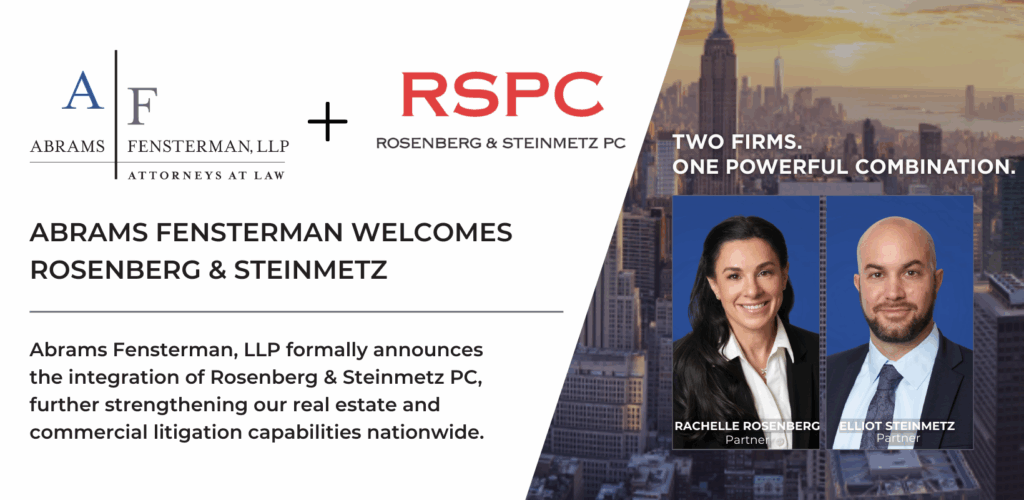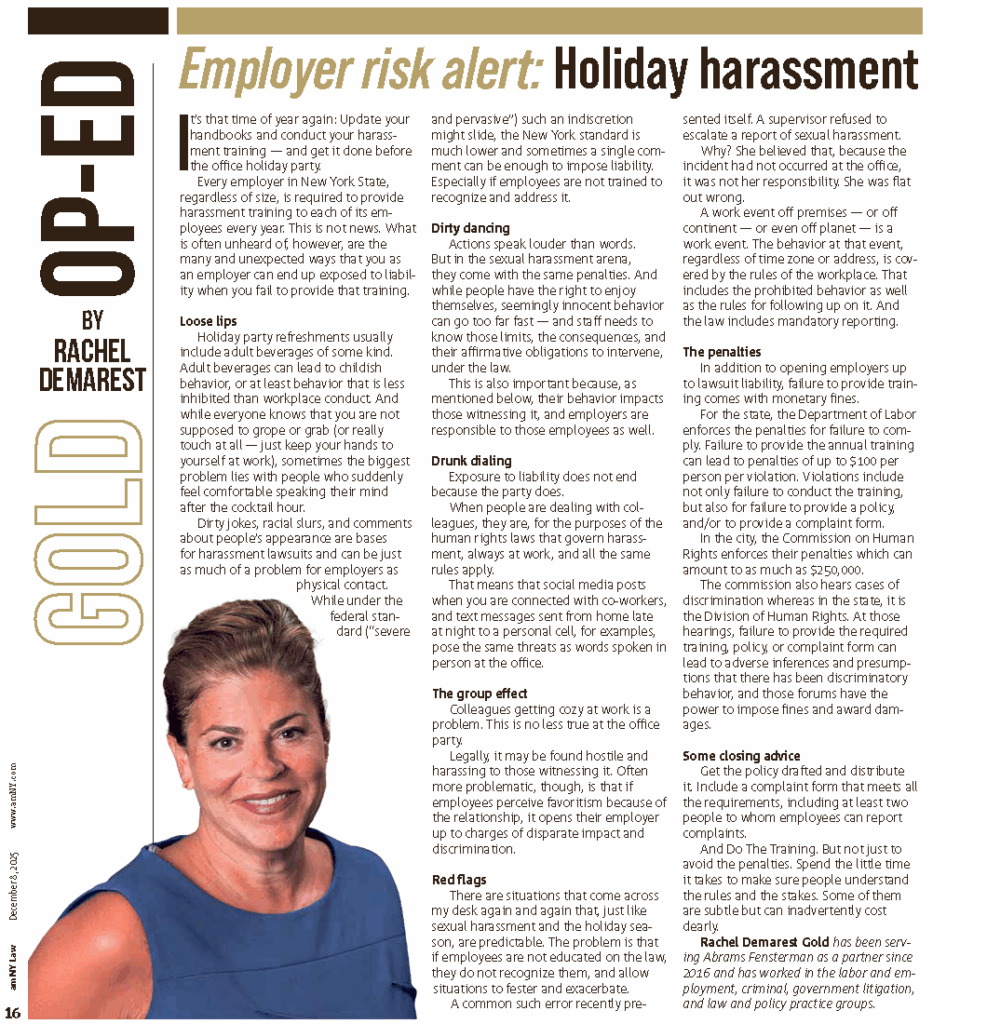By Justin Kelton
Many people assume that an individual who receives a Schedule K-1 from an entity must be a partner of that entity. The law of “tax estoppel” is not so simple. In fact, a string of decisions, including the First Department’s recent decision in Tradesman Program Managers, LLC v. Doyle, 202 A.D.3d 456 (1st Dep’t Feb. 3, 2022)(“Tradesman”), have held that issuance of a K-1 alone is not determinative of partnership. Since partnership disputes often involve threshold questions of whether a partnership interest exists, this article provides a detailed look at New York’s tax estoppel doctrine and the various exceptions recognized by New York courts.
Overview of New York’s Tax Estoppel Doctrine
In New York, the doctrine of tax estoppel generally applies when a party seeking to contradict statements in tax returns “signed the tax returns, and has failed to assert any basis for not crediting the statements.” PH-105 Realty Corp v. Elayaan, 183 A.D.3d 492 (1st Dep’t 2020) (citing Cusimano v. Wilson, Elser, Moskowitz, Edelman & Dicker LLP, 118 A.D.3d 542 [1st Dep’t 2014]; Stevenson-Misischia v. L’Isola D’Oro SRL, 85 A.D.3d 551 [1st Dep’t 2011]). Thus, a party may be precluded from advancing an argument in litigation that is “logically incompatible” with tax forms that the party signed. See Matter of Chimsanthia, 200 A.D.3d 450 (1st Dep’t 2021) (citing Matter of Ansonia Assoc. L.P. v. Unwin, 130 A.D.3d 453, 454 [1st Dep’t 2015]).
But tax filings, standing alone, do not prove the existence of a partnership or membership interest. Rakosi v. Sidney Rubell Co., LLC, 155 A.D.3d 564, 565 (1st Dep’t 2017). “They may be relevant to the inquiry, but are not determinative.” Id. As discussed below, there are several circumstances in which a statement on a Schedule K-1 or other tax filing is not determinative of partnership.
The First Department’s Recent Decision in Tradesman
The Appellate Division, First Department recently clarified New York’s tax estoppel doctrine in Tradesman. In the underlying litigation, the plaintiff had moved for summary judgment seeking to establish that defendant JCB was not a member of the plaintiff entity, and thus not entitled to an interest in the entity. In opposition, JCB argued that the “plaintiff was estopped from disputing JCB’s ownership interest on the basis of a Schedule K–1 that plaintiff distributed to its members for the 2017 tax year, which showed JCB to have an 18.75% profit and loss share and a ‘various’ capital share.” Id. at *1.
The First Department rejected JCB’s tax estoppel argument. The court began by noting that “[t]ax estoppel “applies where . . . the party seeking to contradict the factual statements as to ownership in the tax returns signed the tax returns, and has failed to assert any basis for not crediting the statements.” Id. (citing PH–105 Realty Corp. v. Elayaan, 183 A.D.3d 492, 492–493 [1st Dept 2020]). But the court found that the plaintiff had not signed the K–1 in question. Id. In addition, the court found that the plaintiff “offered a reasonable explanation why the statement contradicts reality”—specifically, an affidavit stating that plaintiff paid distributions to JCB based only on misrepresentations made to plaintiff by one of its original members. Id. Finally, the court found that JCB did not contribute any capital to plaintiff, which, the court held, “militates against any conclusion that it is estopped from denying JCB’s ownership stake . . . .” Id. (citing Boslow Fam. Ltd. Partnership v. Glickenhaus & Co., 7 N.Y.3d 664, 667 [2006]).
Other Decisions Limiting New York’s Tax Estoppel Doctrine
Other courts have rejected tax estoppel arguments where there is no sign that the recipient of the tax documents adopted them as accurate. For example, in McGuire v. McGuire, 197 A.D.3d 897 (4th Dep’t 2021) the Appellate Division, Fourth Department held that “[t]ax estoppel does not apply where, as here, the relevant tax documents are neither sworn nor signed by the party against whom they are used.” Id. at 902. The court further held that the doctrine of tax estoppel did not apply under the circumstances of the case because “the relevant documents were not prepared by plaintiffs, but rather by a third party at the direction of MDC, which is managed by defendant.” Id. (citations omitted). The court noted that it would “distort the doctrine of tax estoppel beyond recognition” to apply the doctrine against a party based on a tax document that the party “did not swear to or sign, and which was, in effect, prepared by their opponents.” Id. (citations omitted).
There are still other exceptions to the doctrine. A plaintiff who states that they are “self-employed” on a tax return is not estopped from claiming that they were an employee. Abdelhamed v. XYZ Limousine, Inc., No. 526546/2019, 2021 WL 4198096, at *1 (N.Y. Sup. Ct. Sep. 14, 2021) (“in the employment context, a litigant’s declaration of being an “independent contractor for tax purposes and deducted expenses on her tax returns as if she was self-employed is not dispositive. In this context, litigants should not be estopped from claiming that they were employees.”) (citations omitted).
Tax estoppel also cannot be used to contradict an argument previously advanced in litigation. Rakosi v. Sidney Rubell Co., LLC, 155 A.D.3d at 565 (“defendants are judicially estopped from reliance on the K–1s as proof of their LLCs’ partnership interests, having taken the precisely contrary position in [a prior litigation], and prevailed”).
Finally, issuance of a Schedule K-1 to a successor to a decedent’s membership interest in an entity is insufficient to prove that the successor is herself a member of the entity. Pappas v. 38-40 LLC, 172 A.D.3d 409, 410 (1st Dep’t 2019) (finding that successor was not the “legal or equitable owner” of a membership interest, and that “Defendants’ grant of access to books and records and issuance of a K-1 did not constitute admissions by defendants that plaintiff was a member.”).
The Takeaways
Litigants sometimes presume that information on a Scheduled K-1 can never be challenged in court. But as discussed above, New York’s tax estoppel doctrine is not so absolute. Statements on tax documents can be overcome in a variety of circumstances, such as when the documents are not signed by the party against whom estoppel is sought, where there exists a reasonable explanation for why the statements are incorrect, or where there are other factors militating against a finding of membership. Since high-stakes partnership disputes often involve tax estoppel arguments, litigants should consult experienced counsel to determine how the doctrine may impact their matters.
Justin T. Kelton is a partner at Abrams Fensterman, LLP, where he is Co-Chair of the firm’s litigation department. His practice focuses on complex commercial litigation, employment law, and intellectual property matters. He can be reached at 718-215-5300 or [email protected].
Reprinted with permission from the April 14, 2022 edition of The New York Law Journal, © 2022 ALM Media Properties, LLC. All rights reserved.
Further duplication without permission is prohibited. ALMReprints.com – 877-257-3382 – [email protected].





